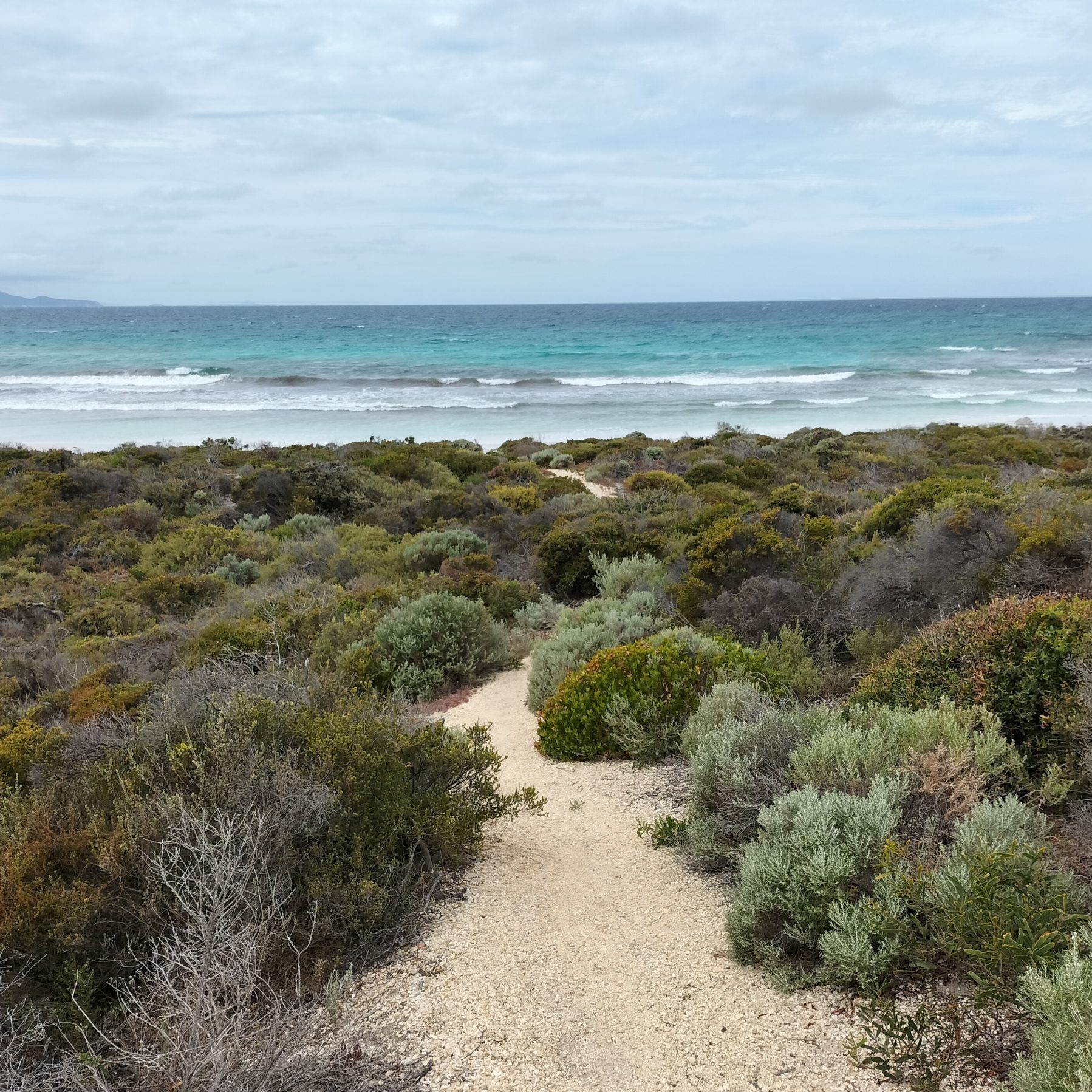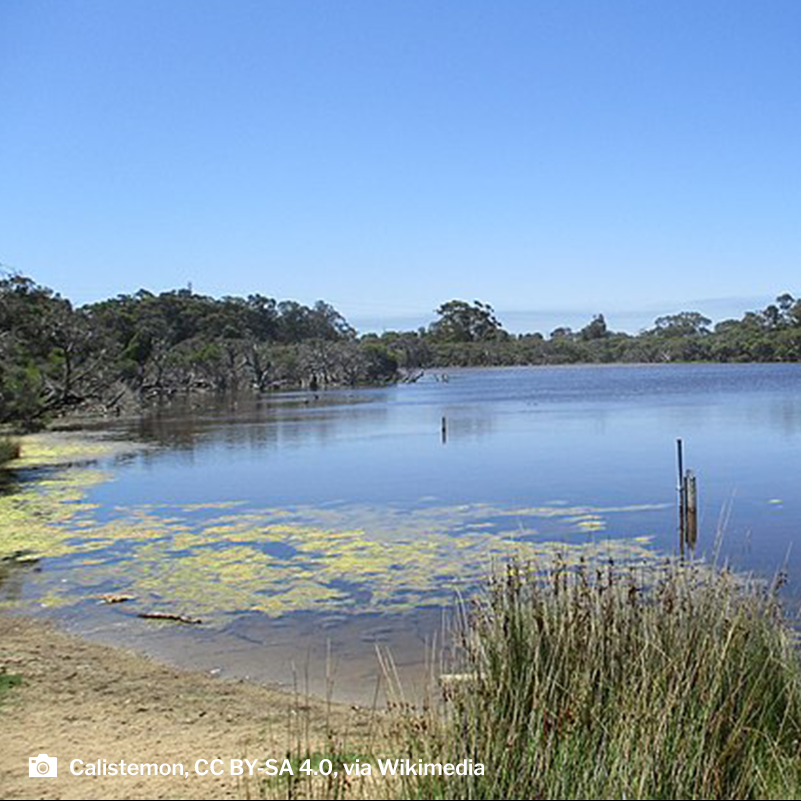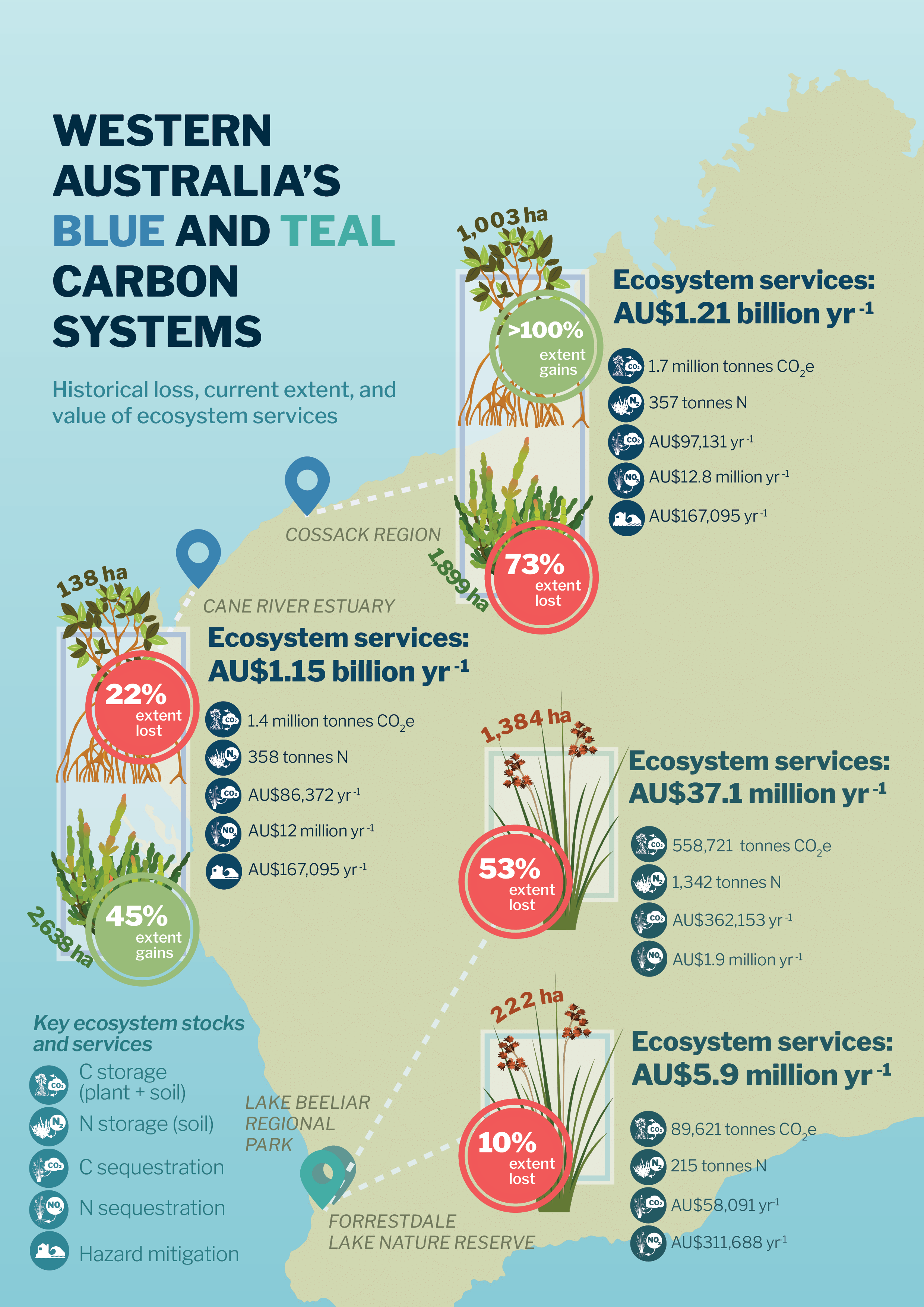Wetlands are recognised globally for their ability to mitigate climate change by sequestering and storing carbon in their plants and soils. This is why coastal wetlands have been nicknamed ‘blue carbon ecosystems’, with their freshwater counterparts being referred to as ‘teal carbon ecosystems’.
While the value of these systems is enhanced by the multitude of co-benefits they provide people and nature, there is little understanding of how much these services are worth $$$$.
Using sites in Western Australia as case studies, we quantified and valued ($) the ecosystem services provided by two coastal wetlands [Cane River estuary and Cossack region] and two freshwater wetlands [Beeliar Regional Park and Forrestdale Lake Nature Reserve].
We combined local and regional-scale data with global estimates to develop ecosystem service tables for each study area using environmental-economic accounting (EEA) principles.
Coastal wetlands

Freshwater wetlands

Our first-pass assessment suggests coastal blue carbon sites in the Pilbara region can provide each year over AU$1.1 billion ecosystem services, including coastal protection and carbon and nitrogen storage. Freshwater teal carbon sites in Perth, such as the Beeliar Regional Park, can provide over AU$37 million.
While much more data is needed to accurately value wetlands using tools like environmental economic accounting (EEA), preliminary results already highlight the importance of wetlands for communities in Western Australia and the need for their protection.
Given local datasets are scarce and biased towards specific ecosystems and services (eg. seagrass carbon), we hope this research will highlight the knowledge gaps that need to be addressed to improve our capacity to predict and understand the value of wetlands at a local and regional scale.

